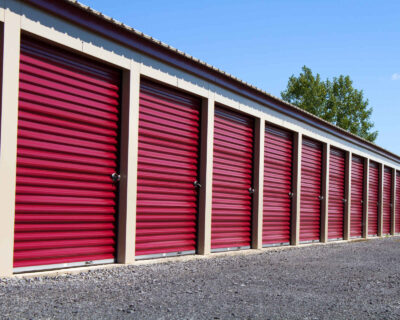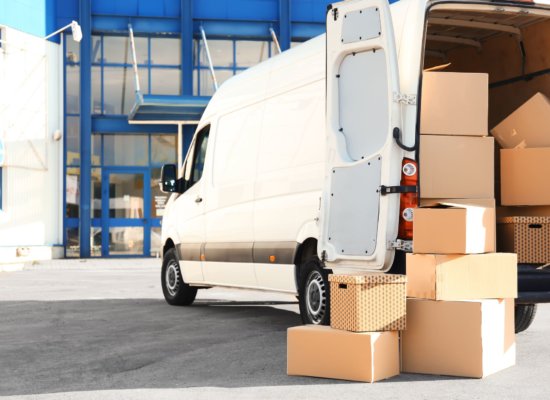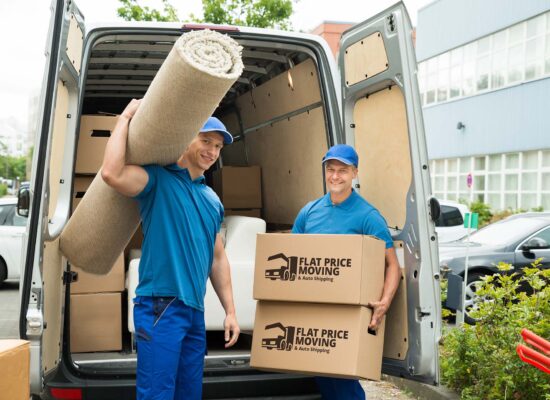How to Pack Liquids for Safe Transport With Flat Price Auto Transport and Moving
Knowing how to pack liquids for shipping is crucial to avoid spills and damage during relocation. In this guide, we’ll cover the essential techniques and tips for safely transporting your liquid items with Flat Price Auto Transport and Moving. From selecting the right containers to understanding the legalities of transporting hazardous materials, we ensure your liquids are packed securely for a stress-free move.

To pack liquids securely, start by selecting the right containers – opt for sturdy, leak-proof options like plastic bottles or glass jars with tight-sealing lids. Use plastic wrap to seal the lids further and prevent leaks. Then, place these containers in strong boxes with dividers to keep them upright and prevent them from moving during transport. For added protection, line the boxes with absorbent pads and sealable plastic bags. Finally, label each box clearly with the contents and handling instructions, ensuring they are handled with care during the move.
Understand the Importance of Knowing How to Pack Liquids When Cross-Country Moving
Staying organized when planning a cross-country move is crucial, especially when it comes to transporting liquids. If not packed properly, these objects can lead to spills and damage, turning what should be an exciting transition into a stressful ordeal.
No matter if you’re relocating at the last minute or have plenty of time to do all the tasks from your to-do list, ensuring that these kinds of objects are securely packed is essential. So, as you book long-distance moving services, start organizing the whole process for a smooth and safe move.
What Risks Are Associated With Moving Liquids?
When it comes to shipping liquid items, the risks of improper securing are numerous and can lead to significant complications. Spills and leaks from poorly secured containers can damage other belongings, create hazardous conditions, and result in costly cleanup efforts.
More importantly, the transportation of hazardous liquids, such as cleaning chemicals or flammable substances, requires adherence to strict legal standards and safety protocols. This applies even if you’ve booked professional packing services. These are some of the items long-distance movers can’t move.
Failing to comply with these regulations not only poses a risk to public safety but can also lead to legal penalties. Ensuring that all liquids are packed and labeled according to the pertinent guidelines is essential to mitigate these risks and safeguard all involved in the relocation process.
Benefits of Professional Packing for Liquids
Handling liquids during a move can be complicated, so hiring reliable cross-country movers with top-notch services offers significant advantages. These professionals are well-versed in the best practices for packing different liquid types within your budget, ensuring that each item is securely sealed and properly labeled. This meticulous attention to detail helps prevent things from breaking and leaking, safeguarding your belongings and the moving environment.
A professional moving and car shipping company is versed in handling legal regulations and safety protocols for transporting hazardous materials. This expertise ensures that your relocation complies with all legal requirements, providing peace of mind and freeing you from the complexities of navigating these regulations yourself. With professional services, you gain the assurance that your liquids are packed with the utmost care, prioritizing safety and compliance every step of the way.

Get the Essential Supplies for Safe Liquid Packing
Choosing the right packing materials is as important as the packing process itself. The correct packaging supplies can prevent leaks and protect your belongings from damage. Start with getting the right containers. Different types of liquids require different types of containers.
That’s why you should make a checklist to stay updated on what you’ve done and what’s still waiting. Here’s the table that helps in identifying which type of container is best for different liquid types based on their properties and the container’s characteristics.
| Container Type | Suitable Liquids | Reasons for Suitability |
|---|---|---|
| Plastic Bottles | Water, Soft Drinks | Lightweight, less likely to break, suitable for non-corrosive liquids |
| Glass Containers | Oils, Spirits | Prevents degradation by the liquid, ideal for substances that could degrade plastic |
Regardless of the material, it is imperative to choose containers that are sealable and leak-proof. Look for containers with tight-fitting lids, preferably those with screw caps or snap-on lids that prevent air and liquid from escaping.
Additionally, consider double-sealing liquids with sensitive or hazardous contents by placing them in sealable plastic bags before packing. This extra layer of protection helps contain any potential leaks, ensuring that other items in the shipment remain safe and dry.
Securing Liquor With the Right Materials
Securing these items properly for an interstate move involves more than just choosing the right containers. It also requires the correct use of various wrapping materials. Key materials include plastic wrap, packing tape, absorbent pads, and sealable plastic bags.
Plastic Wrap
This is used to provide an additional layer of sealant around the caps of bottles or lids of containers. Wrap it tightly around the top several times to ensure the liquid remains contained within the wrap even if the lid comes loose.
Packing Tape
Strong, durable tape is essential for reinforcing containers. Tape can be used to seal the caps and also around the entire perimeter of the container’s lid to prevent any possible leakage.
Absorbent Pads
Placing absorbent pads at the bottom of boxes helps to contain any spills that might occur despite all precautions. These pads soak up liquids quickly, preventing them from spreading to other items and causing damage.
Sealable Plastic Bags
For an extra layer of security, place the containers inside sealable plastic bags. This step is especially useful for potentially hazardous materials. In case a leak occurs, the bag contains the spill, making cleanup easier and preventing contamination of other items.
Together, these materials play a crucial role in ensuring that liquids are packed securely and remain contained throughout the moving process, protecting both the items being moved and the environment from damage.

Step-By-Step Guide to Packing Liquids Safely
A successful move requires careful preparation and execution, especially when it involves packing liquids. Preparing liquidy materials for packing is a meticulous process that requires attention to the specifics of each type of liquid, such as cleaning products, beverages, and oils. Each category requires unique considerations to ensure safety and prevent damage during transportation.
Cleaning Products
These often contain chemicals that can be hazardous. Ensure that all original containers are tightly sealed. If any containers are not sturdy, transfer the contents to a stronger, leak-proof container. Always keep them upright and in a well-ventilated area away from food items and combustibles.
Beverages
For non-alcoholic beverages, plastic bottles with secure caps are typically sufficient. Alcoholic beverages and wines should ideally be transported in their original glass bottles, secured with bubble wrap, and placed in divided wine boxes.
Oils
Glass containers are preferred as they do not interact chemically with the oils. Secure the caps with tape and, if possible, place them in a vertical position in a sturdy box, cushioned with packing material to prevent movement.
Best Practices for Packing and Sealing Liquids
Packing efficiently and sealing liquidy items for transport requires careful attention to detail to ensure that they arrive at your destination without incident. Here are some best practices to follow for leak prevention during moving
- Use sturdy boxes – Choose strong, high-quality boxes that can hold the weight of liquid containers without buckling.
- Positioning containers upright – Always place liquid containers in an upright position. Use custom dividers or create partitions with cardboard to keep containers from tipping or moving around during transit.
- Utilize dividers – Cardboard dividers are essential for keeping individual bottles or containers from knocking into each other, which can lead to breakage or leaks. This is particularly useful for fragile containers like glass bottles.
- Seal with high-quality tape – Use strong packing tape to seal the top and bottom seams of the boxes. Apply multiple strips of tape to reinforce these areas, ensuring that the box remains intact and the contents secure.
- Reinforce box corners and edges – Reinforcing the corners and edges of the boxes with additional tape can provide extra strength and protection during handling and transport.
- Waterproofing – Consider lining the inside of the box with a plastic liner or placing a large sealable plastic bag around the containers. This acts as an additional safeguard against leaks that could otherwise escape the box.
- Label for handling – Clearly label the box with “Fragile – Handle With Care” and “This Side Up” to ensure proper handling and orientation during the move. Also, indicate the nature of the contents if they are hazardous or require special attention.

Loading and Transporting Liquids With Flat Price Auto Transport and Moving
Choosing a reliable long-distance moving company like Flat Price Auto Transport and Moving can significantly enhance the safety and protect containers with liquid. Some of the best practices for loading include securing liquid containers in positions that minimize movement and ensuring that they are easily accessible and isolated from incompatible items. This strategic placement helps prevent shipping mistakes and facilitates easier handling during the move.
Storage Service
Knowing what kind of surprises cross country move may hold, we offer 30 day free storage for belongings at the origin state.
Read moreAuto-Transport
If your first concern is having your vehicle transported safely and efficiently, enclose shipping is the way to go.
Read moreMoving Insurance
Flat Price Moving and Auto Transport Company offers moving insurance to cover potential damages
Read moreUnpacking Liquids at Your New Location
When unpacking after the relocation, you should get organized and handle the containers gently to avoid spills and inspect them immediately for leakage. For any spills, quickly contain and clean the area, ensuring proper ventilation. Dispose of damaged containers or unwanted items according to local regulations, utilizing designated facilities.
Storing Liquids in the New Location
Properly storing these items is essential to ensure they remain intact after the move. It’s important to identify a suitable storage area that is cool, dry, and away from direct sunlight or heat sources. Strategic organization of your items by type – from household cleaners to cooking oils – can prevent cross-contamination and make it easier to find what you need.
- Select an appropriate storage area – Choose a cool, dry place away from direct sunlight and heat sources. Ensure the storage area is well-ventilated, especially for flammable or volatile substances.
- Use shelving – Store liquids on sturdy shelves. Heavier containers should go on lower shelves, while lighter ones can be placed higher up.
- Maintain organization – Keep liquids organized by type – separate food items from cleaning products and automotive fluids. Use secondary containment trays for extra safety, especially for hazardous or leak-prone objects.

Get a Professional Moving and Auto Transport Company to Assist You
Expertly packing and transporting liquid items is crucial for a stress-free moving experience. Flat Price Auto Transport and Moving provides specialized services to handle all your relocation needs, including the safe transport of liquids. Contact us today and ensure every aspect of your cross-country relocation is handled with care and expertise, allowing you to focus on settling into your new home.









